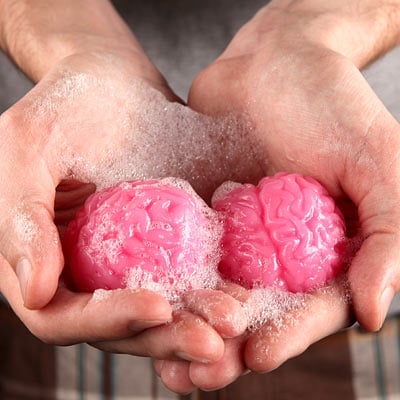
An idea that really struck me about Englebart's article was the original simplicity of his ideas and how they translated into complex machinery. His idea of information storage and its technological organization was taken directly from the constitution of file cards. Englebart essentially improved the file card organization process by eliminating its physical presence, which in turn cuts down on human error like misprint, damage, or loss of information all together.
While I really like this idea of storing information outside of both a tangible object and our own mind, I found that I had the same reservations as Englebart who says, "The price I pay for this 'augmentation' shows up in the time and energy manipulating artifacts to manipulate symbols to give me this artificial memory and visualization of concepts and their manipulation." When I buy an external hard-drive, I'm not buying it so my computer won't gum up and slow down, I'm buying it as an extension of my brain, of my own memory. However I'm not sure I agree that I'm augmenting my human intellect by storing my information elsewhere. My potential intellect isn't any greater with this supplemental technological memory, its just like having a pocket-sized library, its just a pocket sized reference.
Augment - "to make or become greater in number, amount, strength" (http://www.thefreedictionary.com/augmenting)
ReplyDeleteintellect - "The ability to learn and reason; the capacity for knowledge and understanding."
(http://www.thefreedictionary.com/intellect)
With that meaning, I think having a pocket sized reference do in fact make our intellect potential increased. Since our brain can only store and recall so much at a time, having such device extend our capacity for knowledge. Although at the same time, we rely more on the help of the computer. But is it a fair price? I am not sure.
I feel to that an external hard drive helps with things that we cant just hold in a small space, but when it beomce to much of a dependent factor then things get tricky
ReplyDeleteMaking memory into material through card catalogs or digital databases presents new problems. Who decides what is worth the space and time to remember using material means?
ReplyDelete